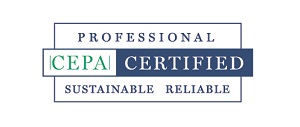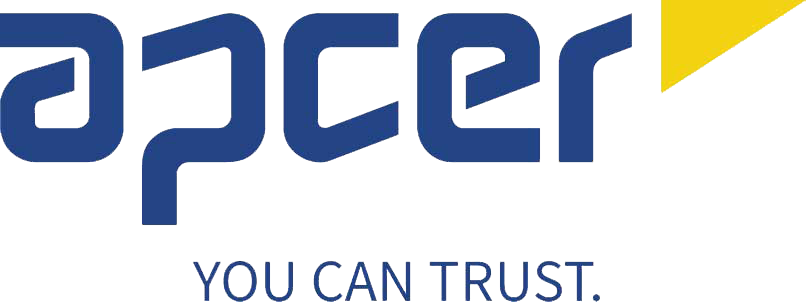Standards Search
ISO 9001
ISO 9001 is the most widely used management system standard in the world and is an international benchmark for the Certification of Quality Management Systems.
According to ISO 9001, adopting a Quality Management System represents a strategic decision taken by an organization. In other words, it is a decision which is taken at the highest level to serve a specific purpose and achieve results.
ISO 9001 is based on the fundamental aim of an organization’s existence. It addresses the ability to satisfy customers’ needs and expectations, to increase satisfaction using a management system and to improve the organization’s overall performance.
ISO 9001 adopts a process-based approach which incorporates the PDCA cycle of continuous improvement and integrates risk-based thinking. This not only helps to bring about customer’s loyalty but it also enables the organization’s competitiveness based on the pillars of sustainability.
ISO 13485
Certification in accordance with ISO 13485 means that an organization is able to provide medical devices and related services that consistently comply with their customer and regulatory requirements.
Organizations may be involved in one or more stages of the life cycle, including the design and development, production, storage and distribution, installation and maintenance of a medical device, and the design and development or delivery of associated activities (technical support, for example).
ISO 13485 can also be used by providers and external parties that supply products, including services related to these organizations’ quality management systems.
Under ISO 9000 standards, guidelines aimed at the manufacture of Medical Devices were developed, including sector-specific requirements.
Consequently, certification in accordance with ISO 13485 aims to facilitate the implementation of regulations and community directives.
ISO/IEC 20000-1
The ISO/IEC 20000-1 standard sets out the requirements needed for an organization to provide their services with an acceptable level of quality for their customers (internal or external). It is fully aligned with the process management approach determined by the IT Infrastructure Library (ITIL) of the Office for Government Commerce (United Kingdom).
The ISO/IEC 20000-1 standard is applied to organizations that are looking to improve their services, that require a consistent approach for all service providers across the supply chain, and that want to demonstrate their ability to provide services in accordance with customer requirements.
APCER is accredited by IPAC – ‘Portuguese Accreditation Institute’, for the delivery of certification services in accordance with the ISO/IEC 20000-1 Information Technology Service Management benchmark.
The scope of the standard includes:
- Requirements for a management system;
- Service management planning and implementation;
- Planning and implementation of new services or service alterations;
- Service delivery process;
- Relationship processes;
- Resolution processes;
- Monitoring processes;
- Release processes.
EN 9100
EN 9100 establishes specific quality management requirements for the aeronautical industry. Based on ISO 9001, it has common requirements as well as additional requirements, essentially related to production, with a special focus on issues of quality, security and technology in all aspects of the industry and throughout the entire supply chain.
This standard was adopted by major manufacturers in the sector (such as Airbus, Boeing, GEAE and Rolls-Royce, for example) who require it in contracts with their business partners.
The standard is based on the high-level structure of ISO 9001 and ISO 14001 which allows it to be easily integrated with those standards and with other ISO benchmarks that already use this structure./p>
NP EN ISO 16636
The ISO 16636 standard was developed to professionalize the pest management sector and protect customers, public health and the environment. It provides clear and current requirements and recommendations and identifies the key skills that are required to deliver a high-quality service and to ensure that risks to human health and potential negative impacts on the environment are minimized.
This standard is intended for providers of professional pest management services and includes the assessment, recommendation and subsequent implementation of inspection procedures and determined procedures.
APCER is recognized by CEPA (Confederation of European Pest Management Associations) as a CEPA Certified® accreditation body CEPA Certified®.
Note: EN 16636 does not apply to the protection of field crops, to routine cleaning or to disinfection services.

NP ISO 10002
This standard provides guidelines for the design and implementation of an effective and efficient complaint handling process for problems relating to all activity types, including e-commerce.
Information obtained during the complaint handling process can bring about improvements in products and processes and, where complaints are handled correctly, can improve an organization’s reputation, whatever its size, location and sector.
Handling complaints using a process specified in this standard can improve customer satisfaction.
Encouraging customer feedback information, including complaints if the customer is not satisfied, can provide opportunities to maintain or improve customer loyalty and recognition, and improve national and international competitiveness.
NP ISO 10667-2
ISO 10667 “Provision of assessment services. Procedures and methods for the assessment of people in working and organizational contexts” is comprised of two parts:
- Part 1: Customer requirements
- Part 2: Requirements for service providers
These standards organize the process of assessing people in working environments from a perspective based on measurable evidence which is applicable at an international level.
In line with this framework, the two standards provide clear and concise guidance for the providers of assessment services and their customers with the aim of allowing all stakeholders and relevant parties to benefit from good assessment practices.
CE Marking – Measuring Instruments
APCER is an European Commission Notified Body No. 0866, for Directive No. 2014/32/EU of 26th February, on the harmonization of the laws of Member States relating to making measuring instruments available on the market.
This document revoked Directive No. 2004/22/CE, and its implementation became effective on 20th April 2016.
This Directive, named Directive MID, was transposed into national law by Portuguese Decree-Law No. 45/2017 of 27th April, which revokes Portuguese Decree-Law No. 71/2011 of 16th June, and harmonizes the requirements for the marketing and/or commissioning of measuring instruments with a measuring function defined in the specific Annexes MI-001 to MI-010.
More information
CE Marking – Construction Products
APCER is an European Commission Notified Body No. 0866, for Regulation (EU) No. 305/2011, Construction Products Regulation (CPR), which determines the conditions for placing or making available construction products on the market.
The CPR became fully effective on 1st July 2013, revoking the Construction Products Directive, 89/106/CEE, with direct and mandatory application in all Member States without needing to be transposed into the national legislative acquis.
APCER carries out conformity assessments of products belonging to several families.
More information:
SQAS Audits
By using independent auditors to conduct audits, the SQAS (Safety and Quality Assessment Systems) benchmark provides organizations in the chemical industry with a tool to assess the quality and safety systems of their logistics service providers in a uniform and harmonized way. A standardized questionnaire is used as a reference document to avoid multiple audits from being individually carried out by several chemical companies. On the other hand, this system provides carriers with useful feedback regarding their areas of strengths and potential areas for improvement which are detected during an audit. An SQAS audit leads to a detailed and fact-based report being issued. This can be made available in a centralized database via the authorization of the company being audited.
While the steps outlined below are geared towards chemical companies, logistics service providers should have an understanding of how SQAS fits into the risk reduction programmes of its partners in the chemical industry. This process must allow for the continuous identification, assessment and reduction of risks to which people, the environment or property are exposed, as a result of the transport and storage of dangerous or hazardous materials.
Such process generally consists of the following steps, although its application to SQAS can be found between steps 5 and 6.
- Making a list of chemical products and dangerous materials;
- Classifying chemical products by their level of risk;
- Classifying chemical products by their level of exposure/potential impact;
- Prioritizing risk assessments;
- Conducting a risk assessment;
- Developing and implementing risk reduction alternatives;
- Carrying out a follow-up.













